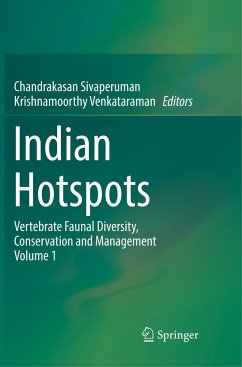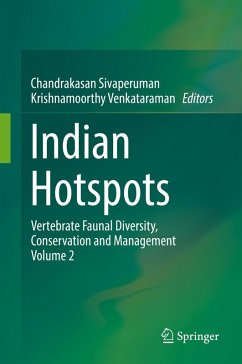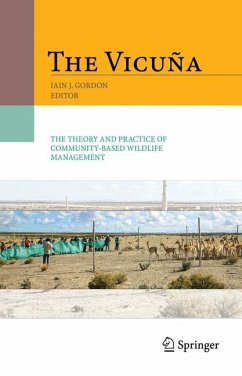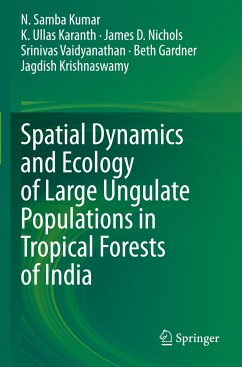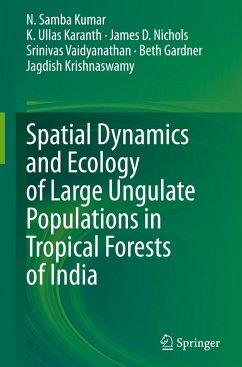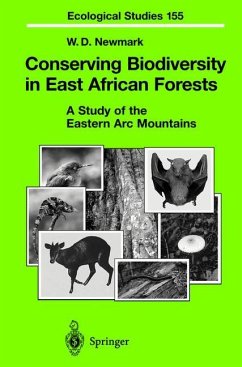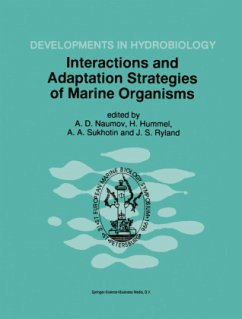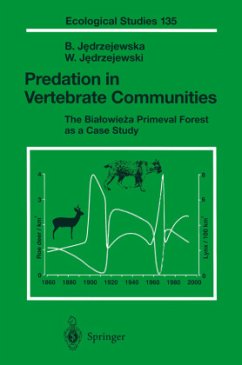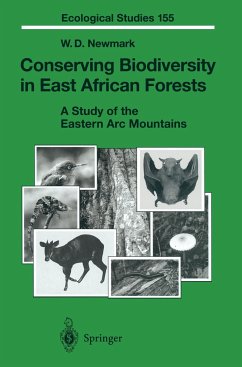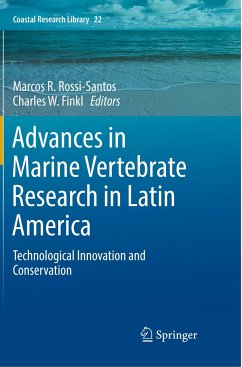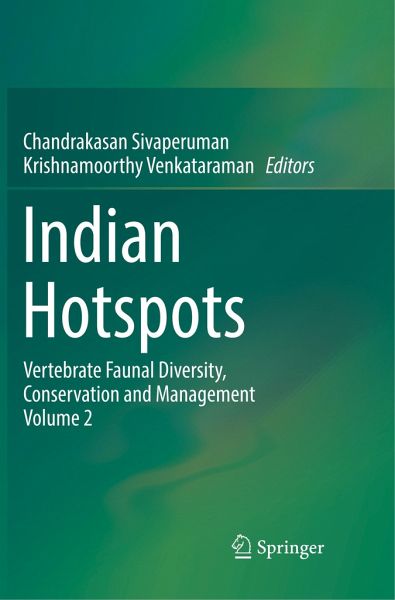
Indian Hotspots
Vertebrate Faunal Diversity, Conservation and Management Volume 2
Herausgegeben: Sivaperuman, Chandrakasan; Venkataraman, Krishnamoorthy
Versandkostenfrei!
Versandfertig in 6-10 Tagen
113,99 €
inkl. MwSt.

PAYBACK Punkte
57 °P sammeln!
This book offers a comprehensive account of India's four biodiversity hotspots: the Himalaya, Indo-Burma, Western Ghats and Sri Lanka and Andaman and Nicobar Islands. With a focus on tropical rainforests, it includes more than 30 chapters covering different vertebrate fauna e.g. fishes, amphibians, reptiles, birds, and mammals, as well as topics such as conservation and management aspects.Written by experts in the field of biodiversity conservation and management, it offers ample new insights into a number of subjects related to the faunal communities of tropical forest ecosystems, providing a...
This book offers a comprehensive account of India's four biodiversity hotspots: the Himalaya, Indo-Burma, Western Ghats and Sri Lanka and Andaman and Nicobar Islands. With a focus on tropical rainforests, it includes more than 30 chapters covering different vertebrate fauna e.g. fishes, amphibians, reptiles, birds, and mammals, as well as topics such as conservation and management aspects.
Written by experts in the field of biodiversity conservation and management, it offers ample new insights into a number of subjects related to the faunal communities of tropical forest ecosystems, providing a valuable resource for conservationists and researchers in the field of flora and fauna diversity.
Written by experts in the field of biodiversity conservation and management, it offers ample new insights into a number of subjects related to the faunal communities of tropical forest ecosystems, providing a valuable resource for conservationists and researchers in the field of flora and fauna diversity.



